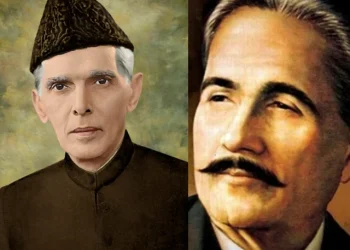As August 28 turns one of Hollywood’s most visionary directors a year older, it’s time to dim the lights, silence your phone, and settle in for a journey through the dark and twisting corridors of David Fincher’s mind. Known for his meticulous attention to detail, haunting visual style, and penchant for exploring the shadowy recesses of human nature, Fincher has crafted a body of work that continues to captivate and unsettle audiences in equal measure.
To celebrate the birthday of this cinematic icon, we’ve curated a quartet of Fincher’s finest – four films that showcase the evolution of his craft and the themes that have defined his career. So grab your popcorn (and maybe leave a light on), as we dive into a day-long marathon that will leave you questioning everything you thought you knew about the world around you.
1. ‘Se7en’ (1995)
We begin our Fincher fest with the film that put him on the map and still sends shivers down viewers’ spines nearly three decades later. Se7en plunges us into a rain-soaked, nameless city where two detectives – the soon-to-retire William Somerset (Morgan Freeman) and the hotheaded David Mills (Brad Pitt) – hunt a serial killer whose gruesome murders are inspired by the seven deadly sins.
From its haunting opening credits sequence to its gut-punch of an ending, Se7en established Fincher as a master of atmosphere and tension. The film’s oppressive urban setting becomes a character in itself, mirroring the decay and moral rot at the heart of the story. As Somerset and Mills descend further into the killer’s twisted world, Fincher ratchets up the dread with each revelation, culminating in one of cinema’s most shocking and memorable finales.
What makes Se7en the perfect opener for our marathon is how it lays the groundwork for Fincher’s career-long obsessions: the thin line between order and chaos, the depths of human depravity, and the often futile struggle to find meaning in a seemingly random universe. It’s a grim worldview, to be sure, but one that Fincher explores with unflinching honesty and dark beauty.
2. ‘Fight Club’ (1999)

As we shake off the gloom of Se7en, our next stop is the cultural phenomenon that is Fight Club. Based on Chuck Palahniuk’s novel, this anarchic satire follows an unnamed insomniac narrator (Edward Norton) whose life is upended by the charismatic Tyler Durden (Brad Pitt). Together, they form an underground fight club that evolves into something far more dangerous and all-consuming.
Fight Club marked a stylistic leap forward for Fincher, blending his noir sensibilities with a manic energy and pitch-black humour. The film’s frenetic editing, fourth-wall-breaking narration, and hallucinatory visuals perfectly capture the fractured psyche of its protagonist and the collapsing world around him.
Beyond its technical virtuosity, Fight Club cemented Fincher’s reputation as a provocateur. The film’s exploration of masculinity in crisis, rampant consumerism, and the allure of destructive ideologies remains as relevant and controversial today as it was upon release. Love it or hate it, Fight Club demands to be grappled with – a trait shared by much of Fincher’s work.
3. ‘Gone Girl’ (2014)

Next in our Fincher marathon is Gone Girl, his electrifying adaptation of Gillian Flynn’s 2012 bestseller. This twisted tale serves as the director’s razor-sharp dissection of modern marriage, media manipulation, and the elaborate facades we construct in the age of constant surveillance. When Amy Dunne (Rosamund Pike) disappears on her fifth wedding anniversary, all eyes turn to her husband Nick (Ben Affleck). As the investigation unfolds, we’re taken on a twisting journey that constantly upends our expectations and allegiances.










 American Dollar Exchange Rate
American Dollar Exchange Rate